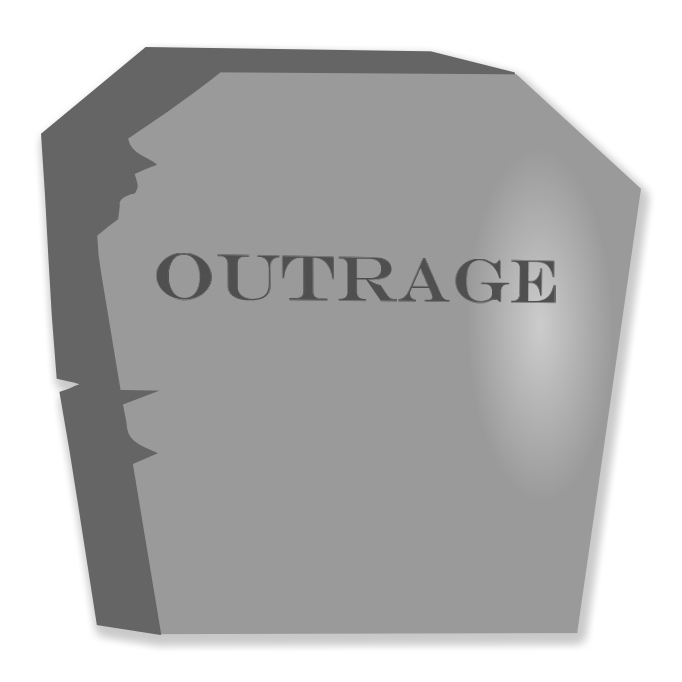We post news and comment on federal criminal justice issues, focused primarily on trial and post-conviction matters, legislative initiatives, and sentencing issues.
THE DEATH OF OUTRAGE
For two weeks last year, the FBI ran one of the largest purveyors of child pornography on the Internet. And the courts say that’s OK.
 After arresting the North Carolina administrator of The Playpen, a child-pornography Internet bulletin board on the “dark web” (accessed through a Tor browser), agents seized the site’s server and moved it to Virginia warehouse. From there, they ran “Operation Pacifier,” a computer-hacking operation of unparalleled scope that has thus far led to criminal charges against almost 200 people. During the FBI operation, plenty of child porn was available to the site’s members. It’s just that at the same time the smut was being transmitted, agents included a secret “Network Investigative Technique,” or NIT, to invade their users’ computers, gather personal information and send it back to the FBI.
After arresting the North Carolina administrator of The Playpen, a child-pornography Internet bulletin board on the “dark web” (accessed through a Tor browser), agents seized the site’s server and moved it to Virginia warehouse. From there, they ran “Operation Pacifier,” a computer-hacking operation of unparalleled scope that has thus far led to criminal charges against almost 200 people. During the FBI operation, plenty of child porn was available to the site’s members. It’s just that at the same time the smut was being transmitted, agents included a secret “Network Investigative Technique,” or NIT, to invade their users’ computers, gather personal information and send it back to the FBI.
At the time the FBI took control of the Playpen website, the site was at least six months and had over 158,000 members, 95,000 posts, 9,333 total topics, and over 1,500 unique users visiting the website daily. During the two-week period when the FBI operated the website, the numbers did not change.
In fact, some court exhibits suggest The Playpen site performed substantially better while under the FBI’s control, with a number of users even commenting on the improvements. The defense for the man accused of being the original administrator of Playpen says these improvements led to the site becoming even more popular. “The FBI distributed child pornography to viewers and downloaders worldwide for nearly two weeks, until at least March 4, 2015, even working to improve the performance of the website beyond its original capability,” Peter Adolf, an assistant federal defender in the Western District of North Carolina, wrote in a motion to have his client’s indictment thrown out for outrageous government conduct. “During those two weeks, the website’s membership grew by over 30%, the number of unique weekly visitors to the site more than quadrupled, and approximately 200 videos, 9,000 images and 13,000 links to child pornography were posted to the site.”
 The investigation has sparked a social and legal controversy over the FBI’s tactics and the impact on Internet privacy, as well as over the agency committing the more serious crime of distributing child porn in order to catch people committing the less serious crime of possessing child porn. Some critics have compared the sting to the notorious Operation Fast and Furious, in which the Bureau of Alcohol, Tobacco, Firearms and Explosives allowed the illegal sales of thousands of guns to drug smugglers, who later used them in crimes.
The investigation has sparked a social and legal controversy over the FBI’s tactics and the impact on Internet privacy, as well as over the agency committing the more serious crime of distributing child porn in order to catch people committing the less serious crime of possessing child porn. Some critics have compared the sting to the notorious Operation Fast and Furious, in which the Bureau of Alcohol, Tobacco, Firearms and Explosives allowed the illegal sales of thousands of guns to drug smugglers, who later used them in crimes.
The U.S. District Court for the Eastern District of New York is the latest court to enter the fray, last week turning back a defendant’s motion to dismiss the kiddie porn possession charge against him because of outrageous government conduct. Judging by the court’s logic, outrage is dead.
The court’s reasoning could put a knot in a pretzel stick. So what if the FBI could have accomplished its investigative goals without allowing for the actual distribution of child pornography and the attendant harm to the child victims? Law enforcement decisions on how to investigate, the court held, are entitled to deference. In other words, if cops want to break the law in order to catch lawbreakers, we must let them do so. If they want to commit a greater crime in order to catch people committing lesser crimes, that’s their right.
The District Court found “clearly unfortunate and undesirable that the government’s operation of the Playpen website allowed child pornography to continue to be accessed and shared, and for child victims thereby to continue to be victimized,” but it was not outrageous. After all, the Court reasoned, the FBI did not post anything to the Playpen website, but simply let it continue to operate. Plus, the investigation let the FBI sweep up 26 child abuse victims, 35 “hands on” child sexual offenders, and 17 kiddie porn child producers.
Of the foregoing, rescuing child abuse victims comes the closest to being an end that justifies the means. But the district court’s concluding rationale is troubling. The FBI’s conduct was not outrageous, the court ruled, because it was not permitting a crime that would not otherwise occur. No one can prove that the website’s users would not just be getting their porn somewhere else if the Playpen website had been shuttered. After all, the court noted, a lot of other people distribute kiddie porn.
 The same reasoning would permit the government to take over a heroin distribution operation, and to continue to sell eight-balls in order to nail end users on possession charges. The buyers are dopeheads– if they don’t buy it from the government sting, they’ll just get it on the next street corner. Or maybe the FBI will next run a string of prostitutes in order to identify johns. The government could take over a poaching operation, and continue shooting elephants in order to identify ivory buyers. A creative U.S. Attorney and some enthusiastic FBI agents could have no end of fun breaking the law with impunity, all for the pleasure of yelling “gotcha.”
The same reasoning would permit the government to take over a heroin distribution operation, and to continue to sell eight-balls in order to nail end users on possession charges. The buyers are dopeheads– if they don’t buy it from the government sting, they’ll just get it on the next street corner. Or maybe the FBI will next run a string of prostitutes in order to identify johns. The government could take over a poaching operation, and continue shooting elephants in order to identify ivory buyers. A creative U.S. Attorney and some enthusiastic FBI agents could have no end of fun breaking the law with impunity, all for the pleasure of yelling “gotcha.”
The Court seemed to chastise the defense for the surprising notion that committing greater federal offenses to nab people committing lesser ones is wrong. “Built into Defendant’s argument is the counter-intuitive, and certainly unproven, assumption that Playpen users, once thwarted from accessing child pornography through that website, would simply give up and stop engaging in this conduct. Though Playpen might have been, as Defendant claims, one of the larger websites of this type, it certainly was not the only one, and there is no evidence upon which the Court can conclude that individuals interested in child pornography would have been so easily deterred from obtaining it by the shutting down of the Playpen website.”
There you have it. As long as there is a criminal element out there, the government may duplicate it, because courts will assume absent proof to the contrary that the drug user will buy her meth from someone else, the john will drive by a different street corner for his sexual assignation, the child porn consumer will troll the dark web until he finds another site. As long as a defendant cannot prove a negative, the government can commit such crimes as it likes while inducing others to break the law as well.
The Court notes that a defendant must show that the government’s conduct caused him — and not just anyone — to commit crimes that otherwise would not have committed. Here, the defense did not show that the FBI’s two-week operation of the Playpen website caused him to commit child pornography crimes and that he otherwise would not have done so. The defendant had been a Playpen member for 3-½ months, and spent under 3 hours on the site during that period (an average of 1 minute 40 seconds a day).
 The flaw in this standard, of course, is that it means that outrageous conduct never occurs unless a defendant is induced to commit a crime he would not otherwise have committed, a conflation of outrageous conduct and entrapment. Here, the government victimized children by distributing kiddie porn – and when the tables are turned, the government is quick to condemn even the briefest and de minimis possession of such images for the harm that their production and distribution cause kids – in order to catch possessors. What the government did is a 15-year mandatory minimum sentence offense; possession is a five-year offense.
The flaw in this standard, of course, is that it means that outrageous conduct never occurs unless a defendant is induced to commit a crime he would not otherwise have committed, a conflation of outrageous conduct and entrapment. Here, the government victimized children by distributing kiddie porn – and when the tables are turned, the government is quick to condemn even the briefest and de minimis possession of such images for the harm that their production and distribution cause kids – in order to catch possessors. What the government did is a 15-year mandatory minimum sentence offense; possession is a five-year offense.
The court observed that “the standard for demonstrating ‘outrageous’ governmental conduct is demanding for a reason.” It must be “so outrageous that common notions of fairness and decency would be offended were judicial processes invoked to obtain a conviction,” and must “shock the conscience.”
We’re unsure why this conduct does not amply qualify.
United States v. Kim, Case No. 16-CR-191 (EDNY, Jan. 27, 2017)
– Thomas L. Root

